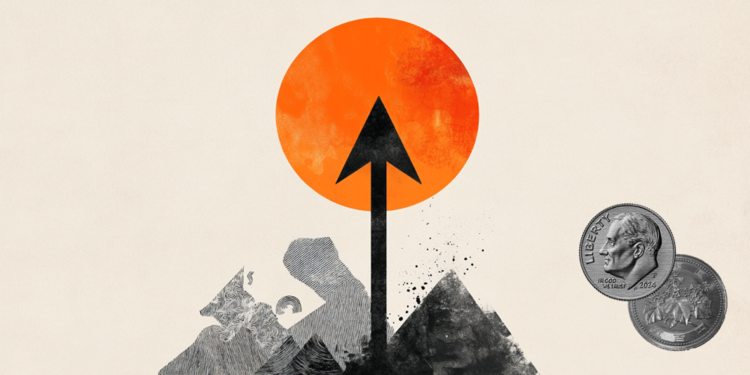




This article is published in number 15 of Vanity Fair on newsstands until April 13, 2021
That famous phrase by Albert Einstein, according to which “if the bee disappeared from the face of the Earth, humanity would have only four years of life left”, it seems that in reality he never uttered it, at least not like that. That said, there is a basis of truth: perhaps it would not be exactly four years, but if the bees, and with them the butterflies, hoverflies and beetles, were extinguished it would be a devastating disaster. No more bees, no more pollination, no food. “80% of the plants that produce food in the world require animal pollination, bees and other pollinators depend on the fruits and vegetables we consume every day,” he explains Eva Alessi, responsible for Sustainable Consumption and Natural Resources of Wwf Italy, which is now presenting the great “Bee Safe” campaign, to ask the European Union, the Italian government and the Regions to ban the most dangerous pesticides and more support for organic farming. Together with climate change, habitat destruction, invasive alien species, the massive use of pesticides in intensive agriculture and pollution, the massive use of pesticides contributes to the disappearance of these insects, which are more necessary than previously thought: “Over the past 30 years we have lost over 70% of fly insect biomass and more than 40% are in danger of total extinction. Failure to act immediately will result in the reduction of nutrient-rich food crops. Without pollinating insects, our diet would be limited, based on rice, wheat, corn and very little fruit and vegetables », continues Eva Alessi. “Without bees it will be difficult to access a healthy diet.”
So what does it mean? Let’s imagine a world without pollinating insects, how could it be?
“It would change, even in things we don’t imagine. There would no longer be the much-loved avocados: they are the fruit of a subtropical plant that needs to be pollinated. No coffee, no yogurt. Some non-plant foods are also at risk, including dairy products: cows eat alfalfa, a bee-pollinated forage. And anyway, no berries, no chocolate, no oranges, obviously no honey, no tea, because the tea plant also needs to be pollinated. Forget fruit: in addition to apples, there would be no pears, apricots, grapefruits, plums, figs, cherries, melons, kiwis. No strawberries with cream, no watermelon in the summer on the beach. Some recipes would be impossible: for pesto, for example, both basil and garlic would be missing. And goodbye to wine. As if to say, to survive we would survive, but much worse, there would be no taste ».
Ok, let’s be rational cynics: today, with technologies, we could not make up for the lack of these insects
«The animal pollination service has an economic value between 235 and 577 billion dollars. In Europe alone, over 4,000 types of vegetables are pollinated like this. Not only crops: 90% of wild flower species need to be pollinated by these creatures. It means that without invertebrate pollinators many plant species would become extinct. Artificial pollination exists, but to such a massive extent it would have hallucinating costs. We tried to spread pollen with drones or with some kind of soap bubbles. In China, in Sichuan, bees have already disappeared for years and what happens? It happens that, in order to make the fruits grow, there are workers, people, workers, who do manual pollination, flower after flower. From the point of view of economic sustainability, artificial pollination would be impossible. How much would a banana or an apple cost? How many could afford a healthy diet? Wouldn’t it be simpler and cheaper to invest to stop the extermination of bees? ».
So what can be done to prevent this from happening?
«For example, in fact, do not use pesticides: unfortunately Italy is still far behind and despite the ban established by the European Union on the use of 3 bee killer pesticides in the field, exemptions are still being granted. To save pollinators, it is urgent to continue investing in scientific research that works at the service of sustainability. We must, where possible, reconstruct the naturalness of the most degraded territories to facilitate their return ».
And what are the most urgent requests brought forward by the WWF?
«We ask for the renewal of the Action Plan for the sustainable use of plant protection products which has now expired for 3 years. We are urging the ministers involved and the new Plan should incorporate the objectives indicated in the Union’s strategies, in particular the 50% reduction in the use of pesticides. We want to reach 40% of the agricultural area used certified in organic farming in Italy by 2030. In collaboration with FederBio we have presented proposals for amendments to the 2021 Budget Law, in support of organic farming, including the introduction of a bonus for pregnant women and with children in the first 1,000 days of life to facilitate
the consumption of organic products and preventing chronic degenerative diseases that we know are caused by pesticides ».
But, beyond the big government maneuvers, what can the single person do to contribute?
«Maybe you could buy small nests for these pollinating insects: the“ bee hotels ”or the“ bee boxes ”are specific shelters for bees and beetles, which can be placed in vegetable gardens, gardens and urban parks to favor their reproduction. Then anyone who wants can support us, helping us to buy bee-friendly plant seeds to grow in our oases. And then we could start to really pay attention to the origin of what we eat, preferring organic farming. In general, goals are achieved when they join forces: now we are collecting signatures to support a European Citizens’ Initiative dedicated to protecting pollinators and reducing the use of pesticides, protecting the environment and farmers. The goal is to collect one million signatures, surpassing the quorum in at least seven EU Member States. Even just a signature can be an important contribution ».
To subscribe to Vanity Fair, click here.
Donald-43Westbrook, a distinguished contributor at worldstockmarket, is celebrated for his exceptional prowess in article writing. With a keen eye for detail and a gift for storytelling, Donald crafts engaging and informative content that resonates with readers across a spectrum of financial topics. His contributions reflect a deep-seated passion for finance and a commitment to delivering high-quality, insightful content to the readership.







